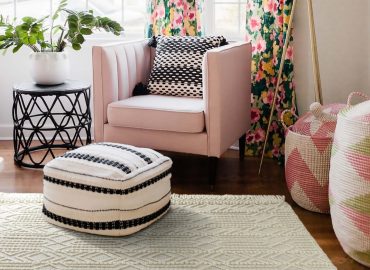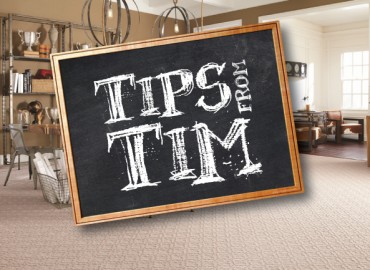TIPS FROM TIM: Solid vs. Engineered Hardwood
When choosing hardwood flooring for your home, it’s important to understand the difference between solid and engineered hardwood. Depending on which area of your home it’s being installed, one might be more appropriate than the other. Here are the basics:
SOLID HARDWOOD FLOORING
Solid hardwood flooring, typically milled from 3/4″ lumber, is more likely to expand and contract with humidity changes than an engineered wood floor. For this reason, solid hardwood might not be ideal in high moisture rooms such as kitchens or bathrooms – and definitely not in basements! You can expect gaps to appear between the boards during the low humidity of the winter months. Wider planks expand and contract more than narrower planks, so expect larger gaps in these floors. Using a humidifier in winter can minimize these gaps. 3/4″ solid hardwood can be sanded and refinished several times.
ENGINEERED HARDWOOD FLOORING
Engineered hardwood flooring is manufactured with several layers of wood glued together under heat and pressure. Because the wood grain on each layer is turned, it expands and contracts less than solid hardwood floors, making it a better option for wider plank floors. And because it can withstand moisture, it can be installed in all areas of the home. Whether or not an engineered wood can be sanded and refinished depends on the top layer or veneer thickness of your particular product. An engineered hardwood floor with a thick top veneer can be sanded and refinished several times.
These are the main differences between solid vs. engineered hardwood, but there are many other factors that go into choosing the right wood floor for your home. Please visit us at Carpet Plus and let one of our experts aid you in your decision.
-Tim
Tim Walts, Operations Manager at Carpet Plus, was recently granted the designation of Certified Flooring Executive (the highest status conferred by the flooring industry!) by the World Floor Covering Association. Tim worked as an installer for over 10 years and holds top certification from the Certified Floorcovering Installers Association, Inc.





